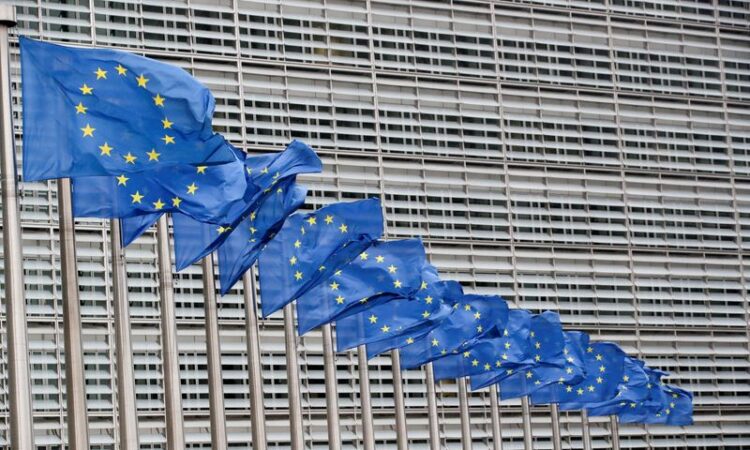
By Jan Strupczewski
BRUSSELS (Reuters) -The euro zone economy will grow slower than expected this year after price growth eroded purchasing power and high ECB interest rates curbed credit, but inflation in 2024 will also be slower than expected, the European Commission said on Thursday.
The EU executive forecast that gross domestic product in the 20 countries sharing the euro currency would increase only 0.8% in 2024 rather than 1.2% it expected last November, but it would still be up from a 0.5% rise in 2023.
In 2025, economic growth should accelerate to 1.5%, the Commission said, slightly reducing its earlier 1.6% forecast.
“The EU economy barely expanded throughout 2023 – and prospects for the first quarter of 2024 remain muted,” EU Economic Commissioner Paolo Gentiloni told a news conference.
“Price pressures have moderated faster than previously expected and energy prices are now substantially lower. As a result, while credit conditions are still tight, markets now expect the loosening cycle to start earlier,” he said.
The EU’s biggest economy Germany will be the biggest drag on euro zone growth this year and next, with growth of only 0.3% in 2024 rather than 0.8% the Commission expected in November and 1.2% in 2025, after a 0.3% recession last year.
The second biggest economy, France, will also grow more slowly in 2024 at 0.9% rather than 1.2% seen in November and third biggest Italy will expand only 0.6% rather than 0.9% forecast three moths ago.
Because economic activity will be smaller, also consumer price growth in 2024 is likely to slow down more than previously forecast — to 2.7%, rather than only to 3.2% seen in November, from 5.4% in 2023.
In 2025 inflation will decelerate further to 2.2%, close to the European Central Bank’s target of 2.0% over the medium term, the Commission said.
“Lower-than-expected inflation outturns in recent months, lower energy commodity prices and weaker economic momentum set inflation on a steeper downward path than anticipated in the Autumn Forecast,” the EU executive arm said in a statement.
But it noted that while inflation will continue to fall, the decline will be slower because EU governments phase out subsidies to energy prices and because shipping costs rise as a result of trade disruptions in the Red Sea.
“By the end of the forecast horizon, euro area headline inflation is projected to post just above the ECB target, with EU inflation a notch higher,” the Commission said.
But Gentiloni cautioned that uncertainty was exceptionally high because of geopolitical tensions and the risk of a further broadening of the crisis in the Middle East.
(Reporting by Jan Strupczewski; Editing by Sharon Singleton)






